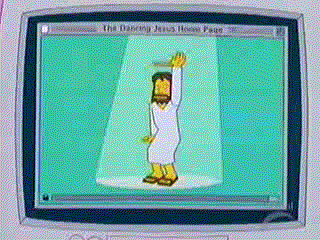Tennyson's In Memoriam: a farewell to religious certaintyThe lyrics teach that the false certainties of evangelical Christianity are as arid as shrill, negative materialism.
Since Einstein developed his theory of relativity, and Rutherford and Bohr revolutionised physics, our picture of the world has radically changed. Yet no poet, to my knowledge, in any European language, has really explored the implications of all this for the way in which we view the world. Tennyson, by contrast, was immediately alive to the imaginative implications of the revolution in the study of geology at the beginning of the 19th century.
We tend to think it was Charles Darwin and the theory of natural selection that began the process of unbelief, first among 19th century intellectuals, later among the world at large – so that by the end of the century, as GK Chesterton observed, "atheism was the religion of the suburbs". But, really, it was Charles Lyell's pioneering work in geology, and the popularised versions of it published in Robert Chambers's Vestiges of the Natural History of Creation (1844), that shook faith.
On the one hand, the readers of Lyell were confronted with concrete scientific evidence that this planet was of infinitely greater antiquity than the Bible would suggest. So bang went any possibility in believing in the literal truth of every word of scripture. At the same time, there came the even more troubling revelation of the fossils, that the species, far from being created whole and finished, as in Milton's evocation in Paradise Lost, in fact came and went. There were many obsolete animal forms revealed in the fossils. What did this revelation do to the hope that not a sparrow falls to the ground unseen by a loving providence?
From scarped cliff and quarried stone
She [Nature] cries, "A thousand types are gone:
I care for nothing, all shall go."
Tennyson imagines Nature looking at "Man, her last work" and being bemused by his faith in a god. The reality of things, as he contemplates the life of prehistoric monsters, is of unthinking violence, and the struggle for the "survival of the fittest" long before the term was coined. The whole history of religion, with Man building "fanes of fruitless prayer" seems pathetic and vain.
A clergyman's son, depressive, heavy-drinking, heavy-smoking, Alfred Tennyson suffered an appalling emotional blow when he lost his best friend Arthur Hallam on 15 September, 1833. Many of Hallam's friends, including Gladstone, who had been all but in love with him at Eton, had seen him as the white hope of his generation. In a series of lyrics, written piecemeal over a number of years, Tennyson confronted not merely his personal bereavement, in the loss of his friend, but the collective bereavement felt by all thinking people of that generation as they said farewell to the religious certainties of the past.
In Memoriam is sometimes thought of, by those who have not read it, as a cosy, or sentimental work. It is the reverse. Although it is so firmly located in the time and place in which it was written, it is absolutely of relevance today. It almost beggars belief that there are still "creationists" in English and American schools who wish to teach young students that the world is only 6,000 years old. Yet it is surely equally staggering that so many clever people suppose that these scientific facts somehow dispose of the ancient mysteries – of love, of moral obligation, of the all but universal sense of God – which have been part of all civilised discourse in every part of the world.
This dialectic is at the centre of Tennyson's great poem. On the one hand, he confronts the raw pain of losing the false certitudes still peddled today by creationists. On the other, with immense delicacy and intelligence, he listens to the intuitive and what some would think of as "female" part of his imagination. He recounts dreams, idle thoughts on his walks, glimpses of nature, as well as the common experiences of bereavement – the sudden, awful remembrance that the beloved is no longer there.
In Memoriam has been my companion for all my grownup life. I have found it a good "self-help" book in bereavement. And of all the 19th century books about faith and loss of faith – John Henry Newman's Grammar of Assent, Ernest Renan's Vie de Jesus, Leo Tolstoy's Confession and The Gospel in Brief, I have found it "answered", both the condition of despair and doubt, which must invade any sensitive soul contemplating an apparently pitiless universe and the raw pain of bereavement; and, yet, which acknowledges the reality of religious experience. The intuitive sense that there is something "behind the veil, behind the veil" is equally honestly confronted. Though "something sealed" the lips of the evangelist when it came to explaining or proving Christ's divinity, it is not purely contemptible to believe where "we cannot prove".
Tennyson seems to be the patron saint of the wishy washies, which is perhaps why I admire him so much, not only as a poet, but as a man. But what the robust, sharp lyrics of In Memoriam teach me, every time I return to them, is that the false certainties of evangelical Christianity are as arid as the shrill negativism of the materialist outlook. Truth comes to us mediated by human love. That message Tennyson found from experience, as well as from his frequent rereading of Dante. He had nothing but scorn for religious controversialists of his day – whether Romanisers or Prots – "To cleave a creed in sects and cries/To change the bearing of a word"… But it was not merely wishy-washy wishful thinking that made his trust in the experience of love.
The love that rose on stronger wings,
Unpalsied when he met with Death,
Is Comrade of the lesser faith
That sees the course of human things.


